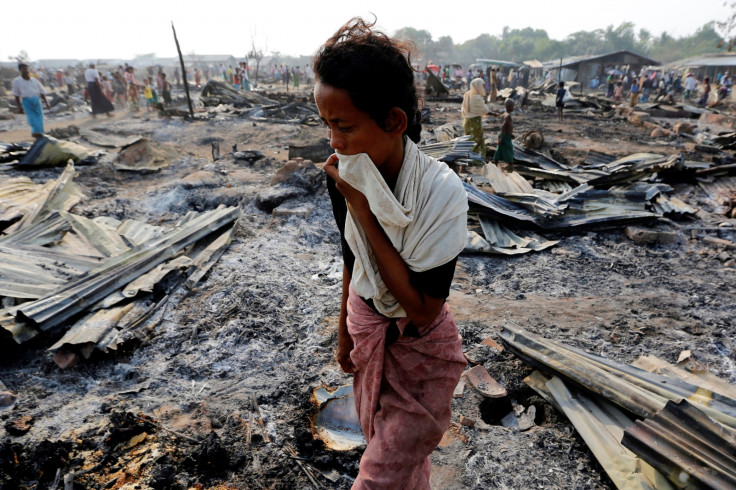Rohingya women claim Myanmar soldiers raped them during a raid on their village in Rakhine
There has been an upsurge in violence between the army and the persecuted minority group in the Rakhine state.

Violence between the Myanmar army and various insurgent groups of Rohingyas continues in the state of Rakhine, with mounting cases of civilian shootings, arbitrary arrests and even military attacks on complete villages. Now, Muslim women from the persecuted minority community are claiming that soldiers from the national army raped and sexually assaulted them during a raid on their village.
Reuters reported that Rohingya Muslims from the U Shey Kya village revealed that Myanmar soldiers entered their village on the pretext of a raid on insurgents, and went on to rob their homes and rape them at gunpoint.
One 40-year-old woman told the news agency that she was held down by a group of soldiers in her home, and then raped. Her 15-year-old daughter was also allegedly sexually assaulted by them before they made away with the family's jewellery and money.
"They took me inside the house. They tore my clothes and they took my head scarf off," the woman said. "Two men held me, one holding each arm, and another one held me by my hair from the back and they raped me."
However, Zaw Htay, the spokesman for Myanmar President Htin Kyaw, has dismissed the claims saying it was not "logical".
"There's no logical way of committing rape in the middle of a big village of 800 homes, where insurgents are hiding," Zaw Htay said. Colonel Sein Lwin, the police chief for Rakhine state also mentioned that the claims were untrue and were being used as "propaganda for Muslim groups".
The recent insurgence has once again called into question the control Myanmar's new government, led by Nobel peace prize winner Aung San Suu Kyi, has on its military.
The renewed conflict between the Rohingya community and the army follows a series of coordinated attacks on three posts along the north-western border with Bangladesh on 9 October, by nearly 250 armed men.
Since then, the army had forced severe restrictions on the locals with UN workers unable to deliver aid to the tens of thousands affected by the lockdown.
Yanghee Lee, the UN envoy on human rights in Myanmar, said there have been "repeated allegations of arbitrary arrests as well as extrajudicial killings occurring within the context of the security operations conducted by the authorities in search of the alleged attackers".
"The blanket security operations have restricted access for humanitarian actors with concerning consequences for communities' ability to secure food and conduct livelihood activities," she noted in her statement on the situation.
The UN has called for a probe into the attacks and "proper and thorough investigations of alleged violations".
© Copyright IBTimes 2025. All rights reserved.






















